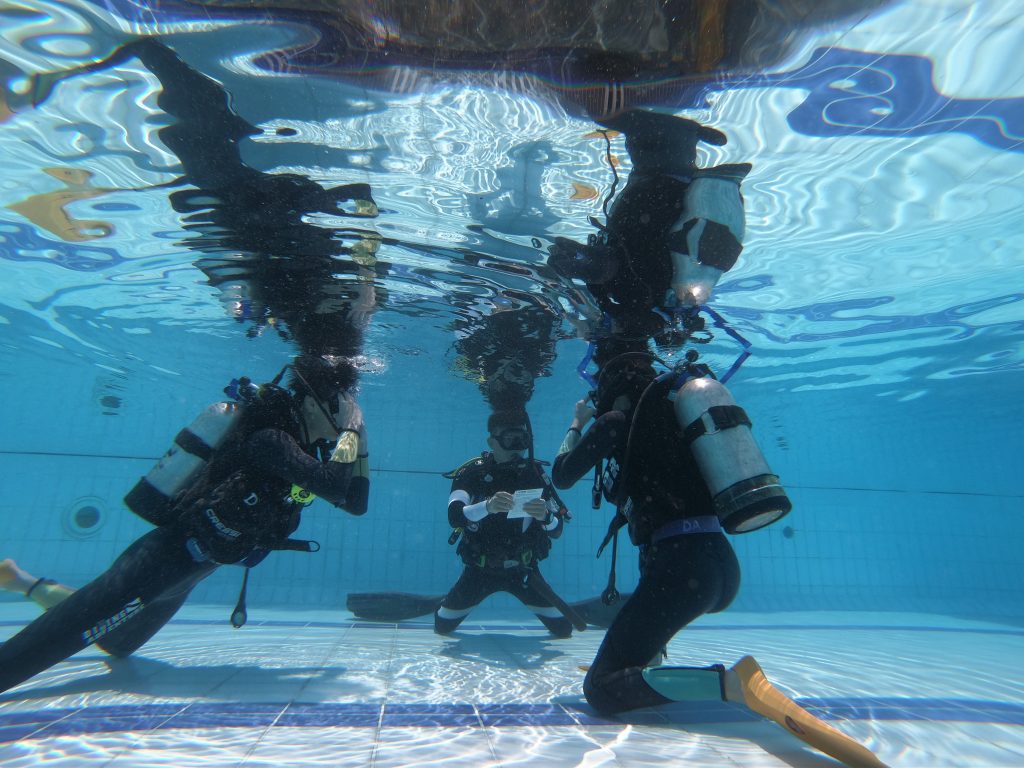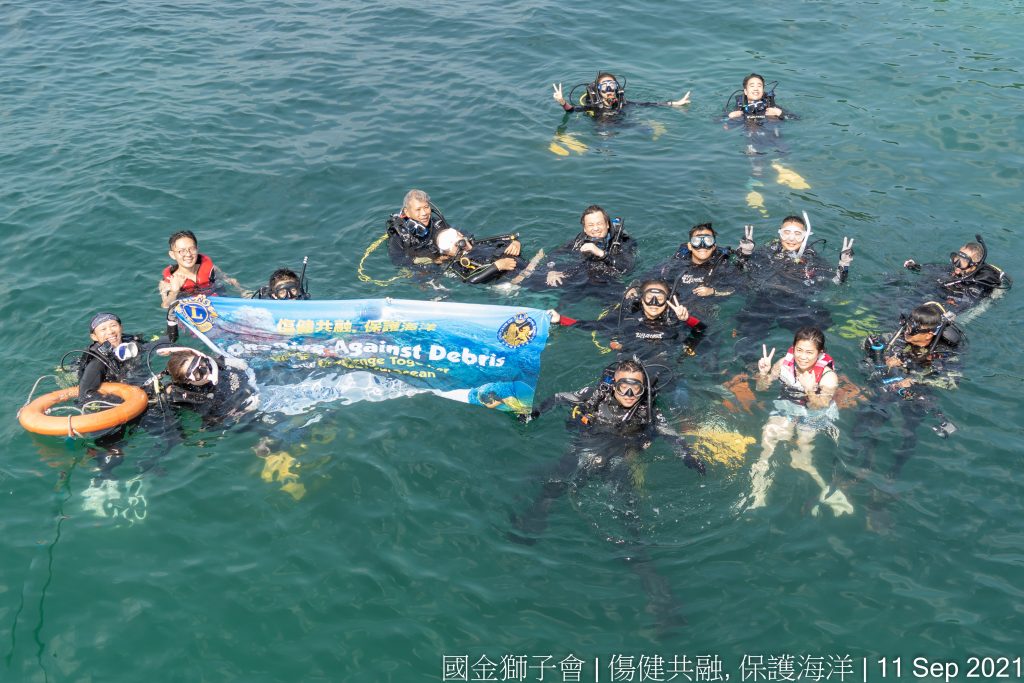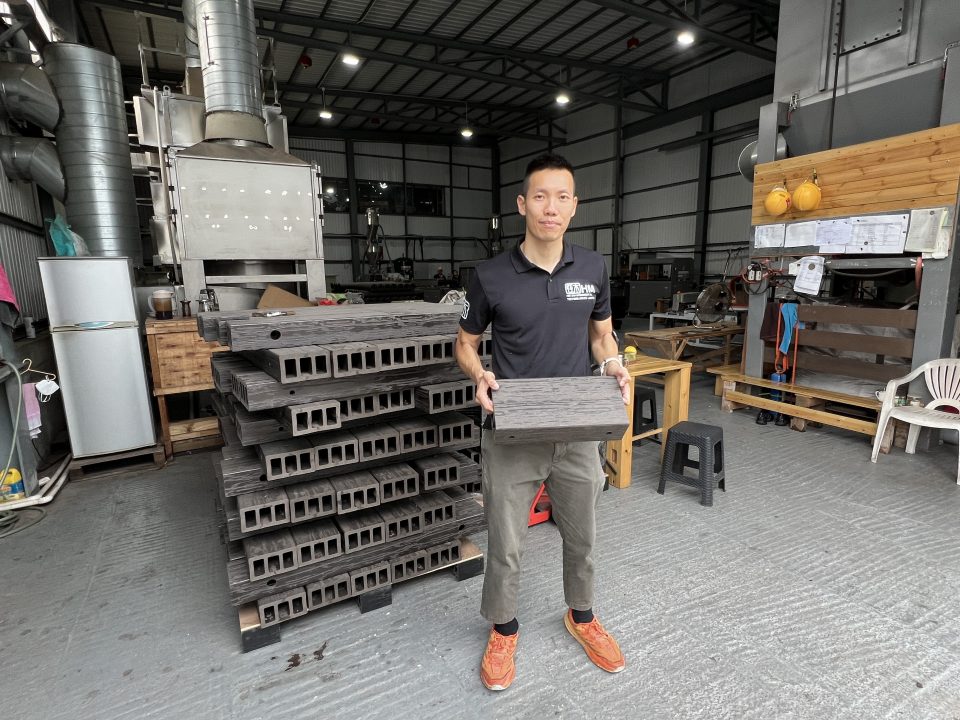
Elkay Interior Systems: Promoting Sustainable Development within Value Chain through Agility
August 8, 2022
Secure Information Disposal Services Limited – The philosophy of taking one step at a time: Turning a new page with innovative thinking and equipping oneself
November 7, 2022Co-living with the Sea: Diving Adventure’s Work in Marine Conservation and Social Inclusiveness
Under the flaming sun, exploring the underwater world might just be the best activity. Great Barrier Reef, Guam, or Maldives are likely the first destinations that come to mind when you think of diving, but Hong Kong too offers some spectacular locations for you to discover.
Stephen Au started Diving Adventure 20 years ago to promote diving. Throughout the years he slowly began to recognise that marine conservation is intertwined with diving. As the operator of a diving school and equipment retail company, Au feels that protecting the ocean is a fundamental responsibility, as well as a long term investment. That’s why he’s integrating conservation work with his existing business avenues. Today he took time out from his busy schedule to discuss his views towards running a sustainable business with us.
| Diving Adventure was founded by Stephen Au in 1998 and is approaching its 24th year. The company has gradually extended its diving related businesses to provide a one-stop support to their students. This includes diving courses across various levels; diving equipment wholesaling and retailing; and activities such as local or overseas diving tours. During the years of expansion, they have implemented multiple Sustainable Development Goals (SDGs) that other businesses could take a page from, including Goal 11: Make cities and human settlements inclusive, safe, resilient and sustainable; and Goal 14: Conserve and sustainably use the oceans, seas and marine resources for sustainable development. |
We are the perpetrators, victims, and also the conservationists
[Customer supplier relationship]
The business scope of Diving Adventure spans across different aspects – it is not only a diving school, but a wholesaler and travel agent. In Hong Kong, diving is not a popular sport, resulting in a limited pool of customers.
Cracking the code for getting return customers is therefore their top priority. The best parts of diving are experiencing the beauty of the underwater landscape and coming face to face with some fascinating wildlife. Hence maintaining attractive marine environments is a great incentive for encouraging customers to come back. If the water quality isn’t good, the visibility from below can be disappointingly limited. Without any living corals, people are unlikely to pay a few hundred dollars to dive.
“When the sea isn’t in a good state, our customers wouldn’t return after diving with us. It’s like saying goodbye to the customer,” says Au.
He asserts that conserving the ocean isn’t just a social responsibility but also makes a compelling business case.
In Au’s eye, conserving the ocean isn’t a walk in the park: “You need only 1 second to cause the damage, yet corals only grow around 1 cm a year. How long would it take to regenerate them all?”. Speaking of Hong Kong’s history of diving, Au reminisces on the scenery described by other veterans. “They said the water in the 60s – 70s were crystal clear, you could even see humphead wrasse.”
Unfortunately the landscape has massively deteriorated since he started diving. He resignedly says, “in the past people didn’t have much of a concept of conservation. Factories and the agricultural sector discharged untreated wastewater into the sea. Fishermen overfished. And people threw rubbish into the sea.” Hong Kong’s water quality ended up slowly declined: marine litter increased, marine life decreased, and the overall environment quality was on the slide. This hurts Au to think.
In recent years we have seen an increase in environmental awareness making the conservation work of Hong Kong waters more valued by the public. Conservation work requires a huge amount of manpower and financial resources. When compared to cure, Au thinks that prevention by enhancing people’s awareness in conservation is ever more important: “It’s always faster to create the damage.”

Being a part of the diving industry, Diving Adventure is actively surveying conservation activities that are tied to their business model, aiming to encourage their students to enjoy the thrills of diving while contributing effort to protect the ocean. “Coastal Clean-up Marathon” is one of the leading examples. Divers who completed their course join a commercial dive named Fun Dive, where Diving Adventure provides boats and takes clients to various ocean areas to dive throughout the day. Diving has a level of physical stress – diving more than once in a day requires at least 2 hours resting period between dives to recover. This prompted Diving Adventure’s staff to cooperate with the Agriculture, Fisheries and Conservation Department (AFCD). In the 2-hour period, they encourage divers to clean up nearby beaches to raise their ecological awareness. The AFCD supply nets, rubbish bin liners, and protective gloves. They encourage divers to pick up small marine debris such as soft drink cans and glass bottles. “It wouldn’t be effective if it was just done once, but if done regularly we see the effect,” says Au. The marathon has been around for three years, and they aim to host it once or twice a month. The activity has been effective, which seamlessly combines action with education. What’s more, Diving Adventure has started selling underwater cameras for divers to take pictures to keep as souvenirs, with the hope that more Hong Kongers could become interested in the underwater world.
“You cannot take away rocks or corals, but you can keep memories forever.”
Promoting inclusivity and popularising diving culture
[Innovation]
While marine conservation is the building block of Diving Adventure’s business, they are also keen on public welfare affairs, actively driving the popularisation of diving sport, and providing opportunities for disabled and grass-roots families in receiving diving trainings. Au explains that diving coaches are mainly freelancers who juggle different jobs, so his company invites instructors to volunteer in order to hit two birds with one stone. On one hand these instructors can accumulate diving experience to help meet qualification requirements, on the other hand the company doesn’t need to hire extra staff.

Au thinks that disabled students can build their confidence and self-identity through diving trainings. “Grass-roots students can also make a living in diving business. There were people who have immigrated to other countries by being a diving instructor in these two recent years”. Au reiterates that they aren’t working on anything difficult but instead clarifying existing stakeholders’ roles in the company to create more opportunities. “We don’t have to invest a vast amount of money. For instance we can pick up trash during ‘Fun Dive’ and volunteer while coaching. It’s not that hard.”
From business to NGO: A flexible business expansion
Diving is not just a sport to cool you down in summer but it can be a profession. The most popular course is PADI (Professional Association of Diving Instructors), however the accreditation is not accommodating for disabled people, but only for those who are physically healthy. This prompted Au to join IAHD (International Association of Hand-in-hand Divers) to help serve the underprivileged.

Walking the path from business to NGO, their operational model has to comply with the changes. “Running a NGO is not cheap, that’s why we must explore low-cost operation models.” While disabled students must still pay the basic course fees, Diving Adventure will proactively negotiate with the schools, and convince them to open up their under-utilised swimming pools on weekends as training grounds. Meanwhile the coaches are volunteering in nature to lower the cost, making it possible for courses’ income to be used to support the operation.
Additionally, Diving Adventure has partnered with larger corporations such as the Wharf (Holdings) Limited to provide grass-roots students a chance to take part in free scuba diving opportunities and eco-tours. With Diving Adventure offering free diving courses to the staff of The Wharf (Holdings) Limited, in return the company also donates to various NGOs to give back to the society.
“Every small-to-medium sized enterprise (SME) has their own strengths, and ours is diving. So we have to maximise that.”
Au says that having a creative mindset, knowing your company inside out and having a strong social network are all indispensable in being a businessman. Although SMEs are not as resourceful as large corporations; with creativity and flexibility, they can find their business niche and opportunities. Au succinctly terms this “Using minimal resources to maximise benefits”.








